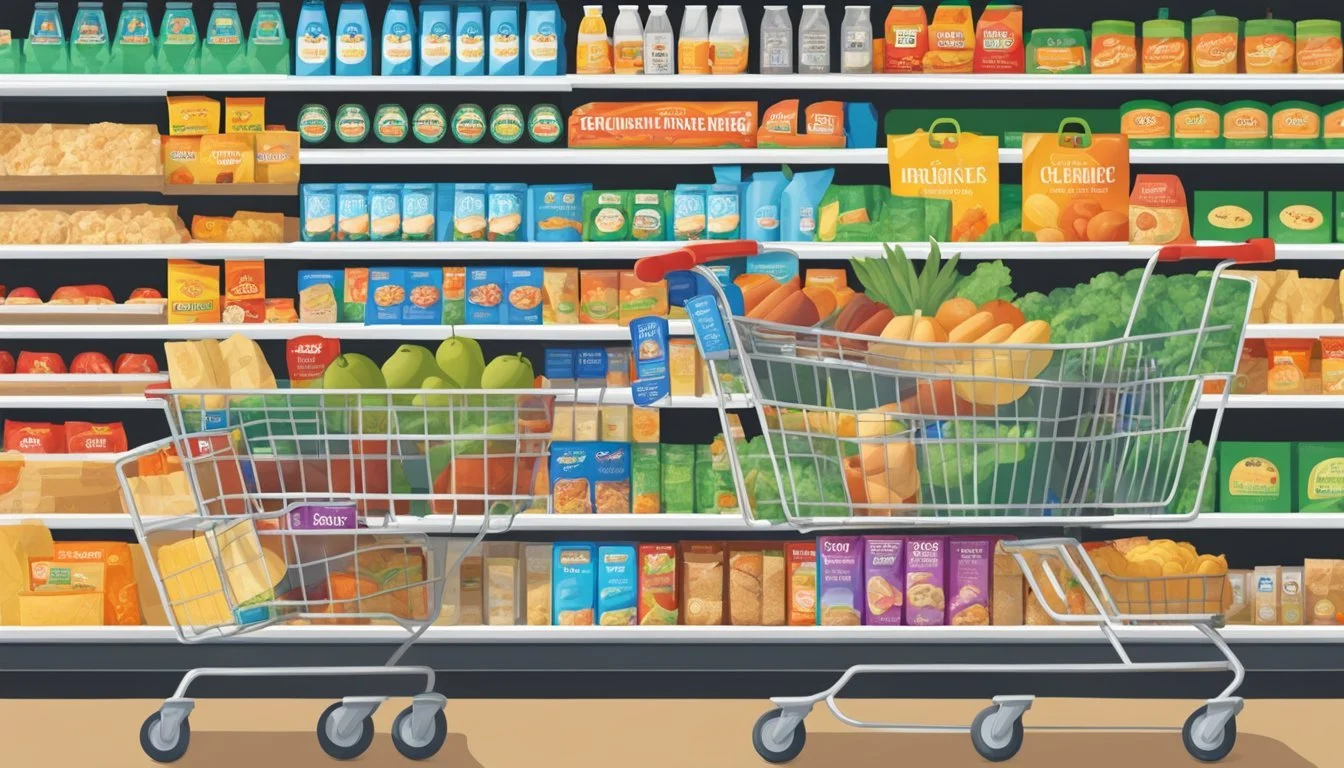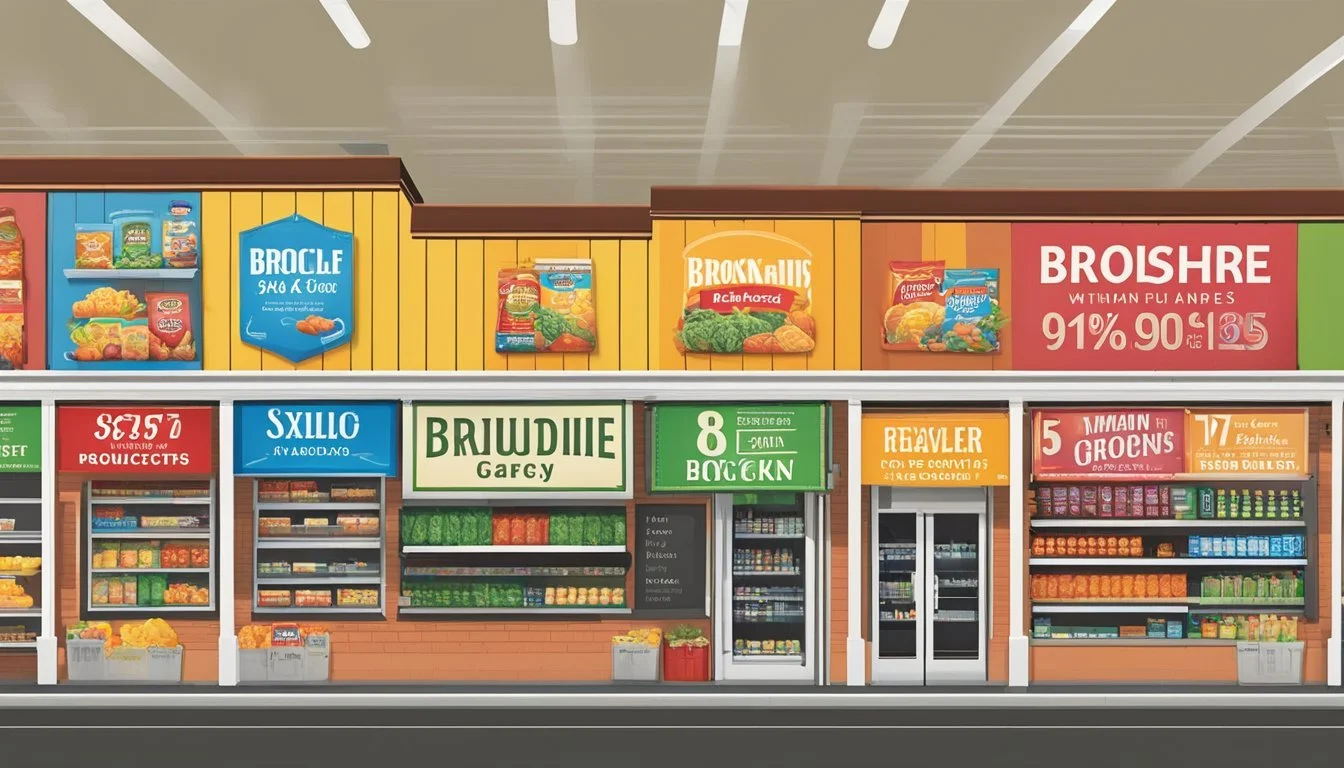Is Brookshire Grocery Company Cheaper Than Winn-Dixie?
A Price Comparison Analysis
Brookshire Grocery Company and Winn-Dixie are two prominent supermarket chains serving customers in the southern United States. While both offer a range of grocery items, their pricing strategies and market presence differ. Brookshire Grocery Company generally offers competitive prices compared to Winn-Dixie, making it a more affordable option for many shoppers.
The recent acquisition of eight Winn-Dixie stores in Louisiana by Brookshire Grocery Company has sparked interest in the pricing differences between these two retailers. This move expands Brookshire's presence in Louisiana, adding to its existing network of stores across Texas, Arkansas, and Louisiana. Winn-Dixie, meanwhile, continues to operate primarily in Florida, Alabama, Louisiana, Georgia, and Mississippi.
Customers in areas where both chains operate now have the opportunity to compare prices and shopping experiences. Brookshire's reputation for value and its Super 1 Foods brand, known for low prices, suggest that shoppers may find more budget-friendly options at their stores compared to Winn-Dixie locations.
Company Profiles
Brookshire Grocery Co and Winn-Dixie are notable players in the supermarket industry, each with distinct histories and market positions. These companies operate in different regions and have faced various challenges and opportunities in recent years.
Brookshire Grocery Co Overview
Brookshire Grocery Co (BGC) is a privately held supermarket chain based in Tyler, Texas. Founded in 1928, the company has grown to operate over 180 stores across Texas, Louisiana, and Arkansas. BGC's store brands include Brookshire's, Super 1 Foods, and Spring Market.
Brad Brookshire, the grandson of the company's founder, serves as Chairman and CEO. BGC is known for its community involvement and employee-focused culture. The company's annual revenues exceed $500 million, placing it in the mid-sized grocery retailer category.
BGC has been expanding its market presence through strategic acquisitions. In a notable move, the company purchased eight former Winn-Dixie stores in Louisiana, converting them to Super 1 Foods locations.
Winn-Dixie Overview
Winn-Dixie is a supermarket chain operating primarily in the southeastern United States. Founded in 1925, it has faced financial challenges in recent years. The company filed for Chapter 11 bankruptcy in 2005 and again in 2018 as part of its parent company, Southeastern Grocers.
Winn-Dixie operates approximately 500 stores across Florida, Alabama, Louisiana, Georgia, and Mississippi. The chain has undergone significant restructuring, including store closures and sales to competitors like Brookshire Grocery Co.
Trey Edwards, a regional vice president, has played a key role in Winn-Dixie's operations in Alabama, Louisiana, and Mississippi. The company has focused on remodeling stores and improving its product offerings to better compete in the challenging grocery market.
Pricing Strategies
Brookshire Grocery Company and Winn-Dixie employ distinct approaches to pricing their products. These strategies aim to attract customers while maintaining profitability in the competitive supermarket industry.
Brookshire's Pricing Philosophy
Brookshire's focuses on providing value through everyday low prices. The company strives to offer competitive rates on staple items like fresh produce, dairy, and grocery essentials. Brookshire's uses a mix of regular pricing and promotional offers to appeal to budget-conscious shoppers.
Their Fresh by Brookshire's concept stores emphasize high-quality, healthy options at reasonable price points. This strategy allows them to cater to health-minded consumers without sacrificing affordability.
Brookshire's also utilizes loyalty programs and digital coupons to provide additional savings to regular customers. These tactics help build customer loyalty while maintaining competitive pricing.
Winn-Dixie's Price Positioning
Winn-Dixie, operated by Southeastern Grocers, adopts a slightly different pricing strategy. The company aims to balance competitive pricing with a focus on fresh, quality products. Winn-Dixie often uses promotions and weekly specials to attract customers.
Their pricing structure tends to be slightly higher than some competitors, but they offset this with frequent sales and discounts. Winn-Dixie's strategy includes:
Rotating weekly deals on fresh produce and meats
Buy-one-get-one-free offers on popular items
Loyalty program discounts for regular shoppers
Winn-Dixie also emphasizes value through their private label products, offering lower-priced alternatives to national brands across various categories.
Store Locations and Reach
Brookshire Grocery Company and Winn-Dixie operate in different but overlapping regions of the southern United States. Both chains have expanded their footprints through acquisitions in recent years.
Brookshire's Regional Presence
Brookshire Grocery Company primarily serves Texas, Arkansas, and Louisiana. The company operates over 180 stores under several banners, including Brookshire's, Super 1 Foods, Spring Market, and Fresh by Brookshire's. In 2018, Brookshire's expanded its Louisiana presence by acquiring 8 former Winn-Dixie locations.
These new stores are in New Roads, Breaux Bridge, Franklin, New Iberia, Abbeville, Crowley, Rayne, and Eunice. The acquisition strengthened Brookshire's position in southern Louisiana, particularly in the Acadiana region.
Winn-Dixie's Market Footprint
Winn-Dixie focuses on the southeastern United States, with a strong presence in Florida, Georgia, Alabama, Louisiana, and Mississippi. The chain operates approximately 500 stores across these states. In Louisiana, Winn-Dixie maintains a significant presence despite selling some locations to Brookshire's.
Winn-Dixie stores are found in major cities and smaller communities throughout its service area. The company has faced financial challenges in recent years, leading to the sale of some locations and potential restructuring.
Financial Health and Market Strategies
Brookshire Grocery Company and Winn-Dixie have experienced divergent financial trajectories in recent years. Their contrasting situations highlight the volatile nature of the grocery industry.
Brookshire's Business Growth
Brookshire Grocery Company has shown steady expansion and financial stability. The company operates over 200 retail grocery stores across Texas, Louisiana, Arkansas, and Oklahoma. Brookshire's focus on regional growth has allowed it to capture increased market share in its target areas.
The company's strategic investments in new store locations and acquisitions have fueled its expansion. Brookshire has also prioritized modernizing existing stores to enhance customer experience. This approach has contributed to revenue growth and strengthened the company's competitive position.
Brookshire's private ownership structure has provided flexibility in decision-making and long-term planning. This has allowed the company to adapt quickly to market changes and consumer preferences.
Winn-Dixie's Economic Challenges
Winn-Dixie has faced significant financial hurdles in recent years. The company filed for Chapter 11 Bankruptcy in 2005, which marked the beginning of a challenging transition period. This filing led to store closures and a major restructuring of operations.
The bankruptcy process resulted in the closure of numerous underperforming locations. Winn-Dixie worked with The Food Partners to evaluate its portfolio and streamline operations. This restructuring aimed to improve financial stability and reposition the company in the market.
Despite these efforts, Winn-Dixie has struggled to regain its former market position. The company has faced intense competition from larger national chains and discount retailers. These pressures have impacted Winn-Dixie's ability to expand and invest in store improvements.
Customer Experience and Loyalty Programs
Customer loyalty programs play a crucial role in shaping the shopping experience and fostering customer retention for grocery chains. Both Brookshire Grocery Company and Winn-Dixie have implemented rewards schemes to incentivize repeat customers.
Brookshire's Loyalty Initiatives
Brookshire Grocery Company offers the YourPoints program across its stores, including Brookshire's Food Stores and Super 1 Foods. Customers can save 10¢ per gallon on fuel with 100 YourPoints, up to a maximum discount of $1 per gallon in Texas and Arkansas.
The company has also run promotional campaigns tied to its loyalty card. In 2010, Brookshire launched the "Thank You Card" campaign combined with a "Thanks A Million Collect & Win Game." This initiative gave customers chances to win up to $1 million.
Brookshire's loyalty program aims to provide personalized rewards and frequent redemption options. This approach aligns with research showing that simplistic, gratifying programs drive customer engagement.
Winn-Dixie's Rewards Schemes
Winn-Dixie operates its own rewards program called Winn-Dixie Rewards. In a recent study of grocery loyalty programs, Winn-Dixie Rewards received a score of 8.12 out of 10, indicating a relatively strong offering.
The program allows customers to earn points on their purchases, which can be redeemed for discounts on future shopping trips. Winn-Dixie's rewards scheme focuses on providing value to regular shoppers.
By offering targeted promotions and personalized deals, Winn-Dixie aims to enhance the customer experience and encourage repeat visits. The company recognizes the importance of loyalty programs in maintaining a competitive edge in the grocery market.
Competition and Industry Position
Brookshire Grocery Company and Winn-Dixie face intense competition from national chains and regional players in the grocery retail sector. Both companies strive to maintain their market share and competitive edge through various strategies.
Brookshire's Compared to Major Chains
Brookshire's operates primarily in Texas, Louisiana, and Arkansas, competing against retail giants like Walmart, Kroger, and Albertsons. The company focuses on providing a personalized shopping experience and community engagement to differentiate itself. Brookshire's has around 180 stores, a smaller footprint compared to national chains.
Despite its regional focus, Brookshire's invests in technology and store upgrades to stay competitive. The company's private label offerings, including Brookshire's Best and TopCare, help it compete on price and quality with larger chains.
Brookshire's also faces competition from regional players like Brookshire Brothers and Shoppers Value. These companies often target similar markets and customer bases.
Winn-Dixie Against National Competitors
Winn-Dixie, with over 500 stores across the southeastern United States, competes directly with major national chains. The company's primary rivals include Publix, Walmart, and Kroger. Winn-Dixie positions itself as a value-oriented option with a focus on fresh produce and local products.
To maintain its competitive position, Winn-Dixie has invested in store renovations and expanded its e-commerce capabilities. The company's loyalty program, SE Grocers rewards, aims to build customer retention in the face of fierce competition.
Winn-Dixie's parent company, Southeastern Grocers, has streamlined operations by divesting underperforming stores and focusing on core markets. This strategy helps Winn-Dixie compete more effectively against well-resourced national chains.







